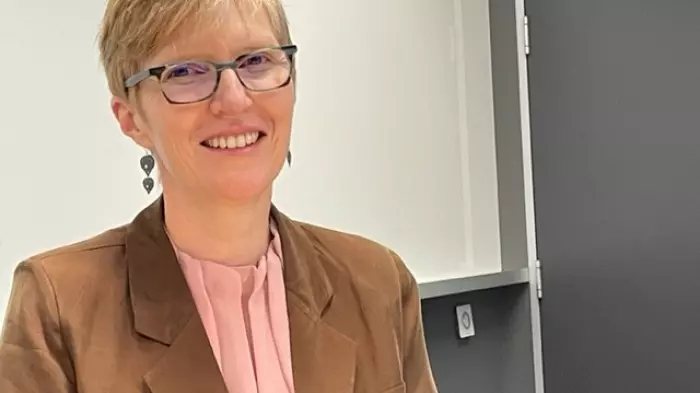Managing wealth not just about accumulation, but how to use it.
On the face of it, this married couple – let’s call them David and Margaret – seemed headed for a reasonable retirement, with about $900,000 to invest for the future.
But, as expert Philip Morgan Rees says, good wealth management isn’t just about what you’ve accumulated, it’s also about what you want or need to do with it.
Morgan Rees, head of Wealth Management and Advice for Milford, says their team regularly helps the likes of David (64) and Margaret (59) prepare for their retirement and to invest their $900,000. But before they recommend options, they gather a lot more information.
In this case, Margaret had a KiwiSaver account valued at $106,000 and the couple owned a rental property, worth $1.3m, that they planned to sell in around five years to help fund their retirement. Although David’s close to retirement age, he’s not anticipating fully stopping work until he’s about 71. By then, Margaret will also be receiving New Zealand Superannuation.
After factoring in all potential inflows, plotting long-term cashflows – including working out regular spending on living expenses and irregular payments such as holidays, updating cars and maintaining the home – Morgan Rees worked out that David and Margaret would need $65,000 a year to live on.
Moreover, for the first three or four years after retirement, they wanted to travel extensively, requiring another $30,000 a year. They’d also like to be able to help out their two children if they need financial support.
With all of those details at hand, Milford were able to suggest investment opportunities that would suit their requirements, he says. “Using an online tool developed by Milford, called LIFE, we model scenarios showing them the long-term expected returns against their expected cashflows and how that would match their goals.”
The digital tool also takes into account that a lot of variables can affect what happens to your investments: “Markets rise and fall and returns don’t travel in a straight line, so you need to look at what could happen to your investments in those different markets,” says Morgan Rees. “The skill of a good financial adviser is the ability to adjust, especially when it comes to taking money out of investments to spend.”
For example, if David and Margaret decide in the future that they want to help their children financially, they not only need to have investments that allow them the liquidity to access their money, but they have to consider what the markets may be doing at the time – as bad timing can have a profound effect on their portfolio.
“If you are drawing a sizeable sum after a big drop in the market – which can happen, we’ve seen three very big drops in the last 25 years – that’s going to have quite a big impact on your wealth in the long term, whereas if you are taking the same sum when markets are at their peak, the impact is not going to be as big on your overall capital position,” says Morgan Rees.
“Good wealth management is working alongside clients to understand the impact, and to know the best ways to use your investment capital.”
The benefit of all the above steps is that, in the case of David and Margaret, they have a much clearer vision of their financial future – and what their options are and how they can achieve their goals.
That, says Morgan Rees, is the fundamental element of wealth management. Receiving good financial advice when it comes to investing hard-earned cash is one factor – but there’s far more to wealth management services than simply helping people to grow an investment portfolio.
Financial advisers should be looking at the big picture when it comes to their clients – including how they want to use accumulated funds, Morgan Rees says: “Investing is not as straightforward as just growing your money as much as possible. Of course that’s a big part of it, but it’s much broader.
“Financial advisers should be looking at all potential inflows and outflows, and getting their clients to answer key questions like, ‘How much money do I need?’, “When am I going to need it?’ and ‘Have I got enough?’
“What’s really important at the outset is what the clients want to do with the money,” he says. “We can then help them to visualise their options and work out a plan.”
One of the big variables with investing money to provide for the future is that no one knows how long he or she will live. Financial advisers don’t have a crystal ball, but they do have tools to show you your options: “Life expectancy tables are not a definitive answer, but they’re a starting point,” says Morgan Rees. “With life expectancy increasing, it’s important to keep growing your portfolio, especially when inflation rears its head from time to time, which makes other more predictable alternatives sub-optimal.
“Good wealth management can help clients to understand their options. When you first retire you are likely to be more active and doing things like travelling. The second phase of retirement is often more centred around being at home and the third stage for some can include the cost of healthcare and support.
“As conditions change, you may need to reassess your options and change your approach. A good financial adviser will be able to advise you on that, especially when your ability to take on risk may also have changed.”
A good financial adviser will not only tell you what they think are the best investment options given all the variables, and make you feel comfortable with your choices: “They are there to take you from the start of your investment experience on a journey that can include periods of market volatility.
“Life can throw curveballs but a good financial adviser can adjust to the circumstances and, by following a good process and communicating really well, along with understanding what you want to do with your money, they can help you to have the lifestyle you want.”
For more information on investing: visit milfordasset.com
Disclaimer: This article does not take into account your investment needs or personal circumstances. It is not intended to be viewed as investment or financial advice. Past performance is not a reliable indicator of future performance. Investment involves risks and returns can be negative as well as positive. Milford Funds Limited is the issuer of the Milford KiwiSaver Plan and Milford Investment Funds. Please read the relevant Milford Product Disclosure Statement at milfordasset.com. Before investing you may wish to seek financial advice. The Disclosure Statements for all Milford Financial Advisers contain more information and are available on request, free of charge. See our Financial Advice Provider Disclosure Statement at milfordasset.com/getting-advice.






